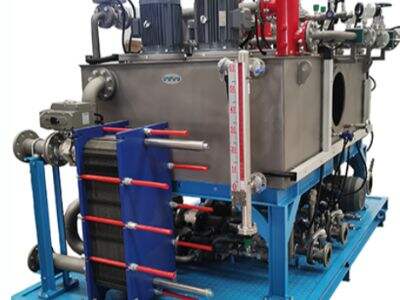Hydraulic power, commonly known as fluid power, is a unique type of technology used to enable heavy machinery to perform their tasks more efficiently. This is in high demand because it is used in almost all types of construction equipment, excavators, bulldozers, cranes, and many more heavy machines. In this text, we will discuss the ways hydraulic power assists heavy machinery and how it operates, why hydraulic power should tend to be well maintained, and the future of hydraulic power.
The Evolution of Heavy Equipment With Hydraulic Power
Hydraulic power makes use of liquid to exert force. The generated force is applied to assist the machines in completing their work. Back in the day before hydraulic power, all heavy machines had to depend on the so-called mechanical power. Such power left machines bulky and sluggish to perform optimally. But with hydraulic power, machines were faster and easier to handle. Following this revolutionary change, newer machines were invented using better technology, machines which could now do the same job as earlier in a short amount of time.
Why Heavy Machines Prefer Hydraulic Power Over Other Types
There are a multitude of advantages for hydraulic power such that, it is ideal for heavy machineries. For one, it is extremely strong, requiring very little force to lift substantial weights. It made it possible for hydraulic-powered machines to move and lift objects that would have been virtually impossible to shift with mechanical power alone. Second, hydraulic power is very flexible and can be applied and used in a wide range of machines and applications. And that choice makes it suitable for a wide variety of different types of jobs. Last but not least, hydraulic power is highly efficient, so, it does more work but consumes less power. This leads to a savings in valuable resources and allowing machines to operate at a greater cost to value ratio.
When Heavy Machines Use Hydraulic Power
Hydraulic power is based on the use of a system of pumps, cylinders, and valves to generate force. They are an important puzzle piece, because they need to push that liquid — oil, most likely, or water — into the cylinders. The liquid gets forced into the cylinders and builds up pressure that aids in the movement and lifting of heavy loads. The cylinders subsequently push the liquid into the valves where they control the flow of the liquid and the direction the force is applied. With this technique, operators are able to direct the flow of liquid in a way that makes machines lift, dig, or move heavy objects.
Hydraulic power is the foundations of heavy making the engine work, so it makes sense that maintenance falls into this category.
Providing proper maintenance to hydraulic power systems is essential for heavy machines to work efficiently. Like anything, if the system is not kept up regularly, it will wear out too quickly which causes breakdowns and other issues to arise. Maintenance is performed by inspecting for leaks, replacing damaged or old components, and cleaning the hydraulic system as a whole up. Using quality liquid in the system is also important to avoid contamination and what comes along with that (serious damage). If proper maintenance of hydraulic power systems is ensured, we can be sure that machines will operate and function for a longer duration of time.
The Future of Hydraulic Power in Heavy-Duty Machine
But hydraulic power in heavy machines has a bright future. Various new concepts and inventions are being applied to harness hydraulic energy that will improve upon the efficiency and environmental sustainability of hydraulic power. For example, companies are developing hybrid systems that integrate electric and fluid power. Such systems enhance the efficiency of machine operation while simultaneously minimizing adverse emissions, thus benefiting from a sustainable development approach. Innovation is also improving the safety and ease of use of heavy machines by their operators. Having these improvements can assist workers to become accustomed to handling heavy machines.
 EN
EN
 AR
AR
 FR
FR
 DE
DE
 HI
HI
 IT
IT
 JA
JA
 KO
KO
 PT
PT
 RU
RU
 ES
ES
 TR
TR







